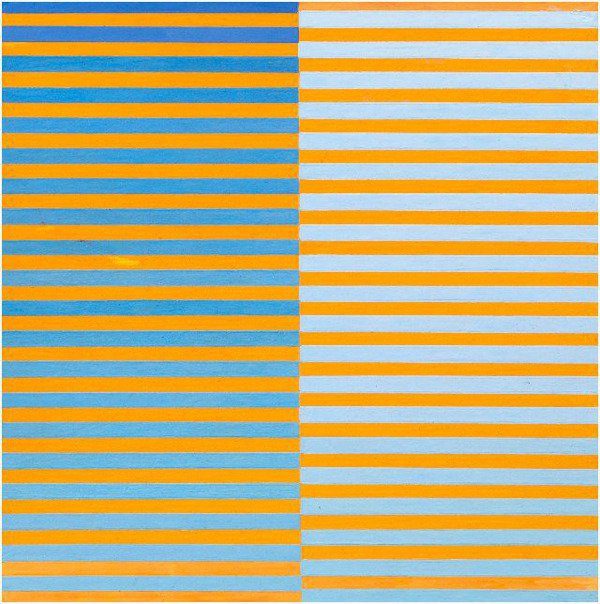Dadamaino
dal 10/10/2013 al 3/1/2014
Segnalato da
10/10/2013
Dadamaino
Galerie Tornabuoni Art, Paris
An important retrospective revealing the totality of her plastic research thanks to more than 60 art works. Her work thrives on her scientific sensitivity and her taste for mathematics, enabling her to develop analytical reflections and structural models to infinity, nourishing her research until the end.

Dadamaino (1930-2004), born Eduarda Emilia Maino, took part in the European avant-garde
movements of the 1960s that will forever leave their mark on art history. The Consortium in Dijon
honors her work with a retrospective show until September 29th, as is the Palazzo delle Stelline
in Milan, whilst the Tate Modern has recently purchased two of her pieces.
Tornabuoni Art presents the most important retrospective ever produced in a gallery, revealing the
totality of Dadamaino’s plastic research thanks to more than sixty art works.
At this occasion a bilingual exhibition catalogue (French/English) is published with texts by Flaminio
Gualdoni, Head of the Dadamaino Archive in Milan and Bernard Blistène, Head of Cultural
Development at the Centre Pompidou.
Dadamaino had a very rich career,
nourished by the different movements and
currents emerging in Europe at the end of
the 1940s. Whether it be for the first
manifesto of Spatialism written by Fontana
in 1948, or at the birth of the N and T
groups in Italy, of the Zero group in
Germany, of Equipo 57 in Spain, of the
Groupe de Recherche d’Art Visuel (GRAV)
(Visual Art Reseach Group) in France, or of
the Nouvelle Tendance (New Tendency) in
Zagreb, Dadamaino was present. She
participated in all of these currents
without ever lingering, on the contrary
freeing herself rapidly from them and
carrying on the development of her own
plastic research. At the same time, the
Italian artist was also a committed
woman within the Italian communist party,
ceaselessly defending her positions as an
artist but also as a citizen.
“When in 58, I started cutting up
canvases until only the frame was left
to see, it is certain that I was putting
myself in contradiction with the type
of art practiced at the time”
Despite her discretion she nevertheless
worked alongside some of the greatest
artists of her time, such as Piero Manzoni
and Lucio Fontana. Starting in 1958 she
amplified the notion of Spatialism, which
Fontana had developed with his famous
« slashes », by tearing the canvas into
elliptic forms, turning void into volume.
Tornabuoni Art will be showing a series of
Volumi, these hollowed out canvases,
imperfect cut-ups that become a frame for
space. Her work thrives on her scientific
sensitivity and her taste for mathematics,
enabling her to develop analytical reflections
and structural models to infinity, nourishing
her research until the end. The Volumi will
give way to another work, centered on
optical vibration. At the time, Dadamaino
perforated but also regularly superimposed,
defied transparency and created the series
Volumi a moduli sfasati emanating from her
optical research through colors.
“Eliminate the materials little by little
and arrive to the pure idea”
A political event, the massacre of Tall el
Zaatar that took place in a Palestinian camp
in 1976, caused the artist great anger and
triggered a reflection on the work of the
unconscious in artistic creation. From this
obsession about the influence of thought
will spring the Alfabeto della mente, an
imaginary alphabet composed of
sixteen signs that will enable, amongst
other things, the « writing » of I fatti della
vita (Facts of life) presented at the Venice
Biennale in 1980, an illegible journal
where she gathers and assembles the
pulse of the world, trying to make sense of
nonsense.
Finally, during the last decade of her life,
Dadamaino’s work evolved towards spatial
considerations in a literal sense. The work
around the series Costellazioni, Movimento
delle cose spurted from the desire to
explore the cosmos, from her wish to
« draw in the air ». The analysis of the world
became the central object of the
constellations. Her obsessional and never-
ending quest for signs ponders
countless questions about the meaning of
life and of history.
Image: Dadamaino, Ricerca del colore. Azzuro su arancio, 1966-68, Tempera on paper mounted on canvas by the artist, 20 x 20 cm
Press contact:
Sylvie Robaglia Art & Communication, +33(0)6 72595734 sylvie@art-et-communication.fr
Gallery contact:
Francesca Piccolboni, Director Tornabuoni Art, + 33(0)1 53535151 fpiccolboni@tornabuoniart.fr
Galerie Tornabuoni Art
16, avenue Matignon - 75008 Paris
Opening hours:
Monday to Saturday from 10am to 6:30pm.



